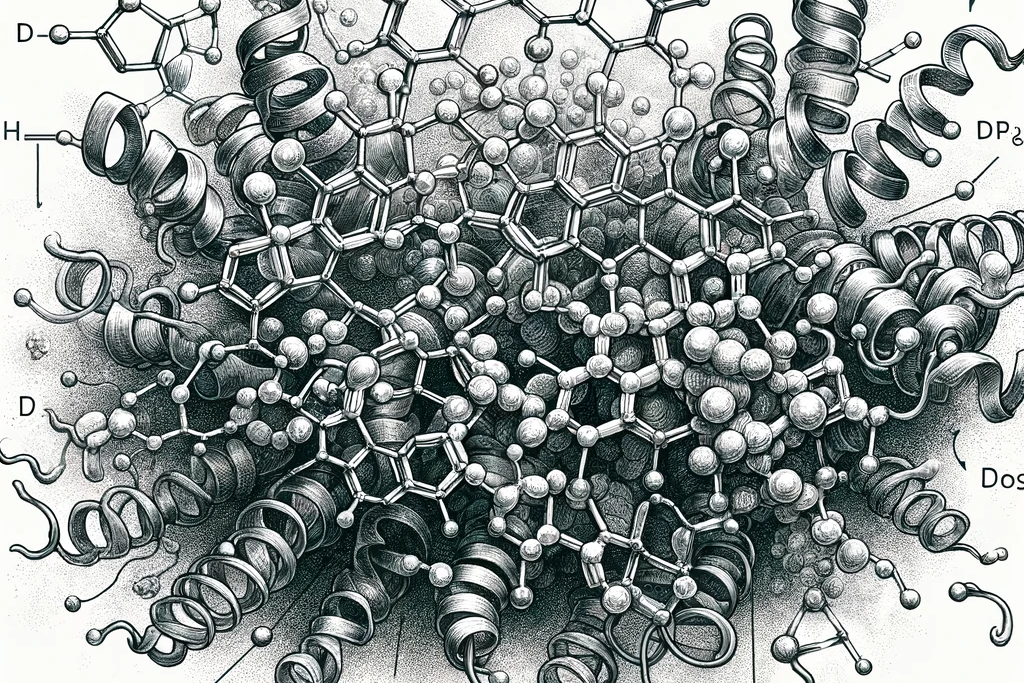Amylases

What are amylases?
Amylases are enzymes that have a so-called endoenzyme function. This means that they can attack 1-4-glycosidic bonds inside starch molecules. They therefore break down long carbohydrate chains into shorter sections, which can then be broken down further by other enzymes. Amylases are among the most important digestive enzymes in dogs, as they play a major role in the utilization of plant food.
How are amylases produced?
Amylases are mainly produced by your dog's pancreas and released into the small intestine. There they act on the food that passes from the stomach into the small intestine. The pancreas adapts the amount of amylases produced to the type and amount of food. So if your dog eats a lot of starchy food, more amylase is needed to digest it.
What are the benefits of amylases for dogs?
Amylases have several benefits for your dog's health and well-being:
- They enable efficient digestion of carbohydrates, which are an important source of energy for your dog.
- They promote the absorption of nutrients from food, which your dog needs for its vitality and immune system.
- They support the intestinal flora and thus prevent digestive problems such as flatulence, diarrhea or constipation.
- They can help with certain diseases such as pancreatitis or diabetes by regulating blood sugar levels.
What are the disadvantages of amylases for dogs?
While amylases are generally beneficial for your dog, there are also some disadvantages or risks that you should be aware of:
- Too much amylase can overload the digestive system and lead to discomfort such as abdominal pain, nausea or vomiting.
- Too little amylase can lead to insufficient digestion of carbohydrates and result in deficiency symptoms, weight loss or loss of appetite.
- Impaired amylase production can be a sign of a serious illness such as pancreatitis, pancreatic cancer or liver cirrhosis.
How can you check your dog's amylase levels?
Your dog's amylase level can be determined by a blood test or a urine test. The normal values for the amylase concentration in the blood are around 20 to 110 units per liter (U/l) and in the urine up to 460 U/l. If these values deviate significantly, you should consult a vet to clarify the cause.
How can you cover your dog's amylase requirements?
Your dog's amylase requirement depends on its diet. If you feed your dog a high-quality dry or wet food that is balanced and species-appropriate, he should be able to produce enough amylase. If you feed your dog raw or cooked meat, you should make sure that he also gets enough vegetable side dishes that contain carbohydrates. You can also feed raw fruits such as bananas, mango, papaya, pineapple or kiwi, which are naturally high in enzymes. If your dog suffers from digestive problems or has a disease that affects his amylase production, you can also give him additional enzymes as a dietary supplement. There are various products on the market that contain enzymes such as amylase, pepsin or lipase and can support your dog's digestion.
Amylases are important digestive enzymes for dogs that help them to digest carbohydrates from food and convert them into energy and nutrients. They are mainly produced by the pancreas and released into the small intestine. Amylases have many benefits for your dog's health and well-being, but also some disadvantages or risks that you should be aware of. You can have your dog's amylase levels checked and meet their amylase requirements through a balanced diet or supplements if necessary.
Properties 3
Are you looking for other ingredients with a specific property?
Just click on them to find more.
If you notice any signs of hypersensitivity or poisoning in your dog, you should see your vet immediately. We are not a substitute for a vet, but we try to be as accurate as possible. Every dog reacts differently and we recommend you get a second opinion or consult your vet if in doubt.
Stay healthy and take good care of your four-legged friend!😊
Similar to Amylases
Peptidases, also known as proteases, are enzymes that break down proteins into smaller peptides or amino acids. These enzymes are found everywhere in nature, from microorganisms to higher organisms,...
Lipases are enzymes that play a key role in the digestive process by breaking down fats into smaller molecules such as glycerol and fatty acids. These enzymes are not only present in the digestive...
Xylanases are enzymes that break down xylans - a type of polysaccharide found in the cell wall of many plants. They are part of a larger family of enzymes that are responsible for breaking down...
Cellulase refers to a group of enzymes that can break down cellulose, a major component of plant cell walls. Cellulose is a complex carbohydrate that is difficult for dogs to digest because, unlike...



